Elia Kazan

Director • Producer • Writer • Actor
Birth Date: September 7, 1909
Death Date: September 28, 2003 — 94 years old
Birth Place: Istanbul, Ottoman Sultanate
Spouses: Barbara Loden
Grandchildren: Zoe Kazan, Maya Kazan
A rare talent who scaled the heights of two artistic disciplines, Elia Kazan overcame humble roots to establish himself as both a driving force in American theater and as a highly-regarded filmmaker. Along the way, he would win three Academy Awards for directing classics like "On the Waterfront" (1954) and "A Streetcar Named Desire" (1951) and be the recipient of an equal number of Tony Awards for his direction of such Broadway landmarks as "Death of a Salesman." Kazan would be further lauded as a pioneer of social justice in cinema, and his daring examinations of topics like racial and religious prejudice came during a time when such things were discouraged by movie studios.
Such displays of depth, daring, and humanity influenced a generation of filmmakers including Martin Scorsese and Francis Ford Coppola. Kazan's groundbreaking work with The Actor's Studio also earned him much credit for his promotion of "The Method," and he was instrumental in launching the careers of such practitioners of that craft as Marlon Brando, James Dean, and Warren Beatty.
Born Elias Kazanjoglou on Sept. 7, 1909 in Constantinople, the capital of the Ottoman Empire (now Turkey), Kazan's parents immigrated to America when he was four years old. His father, George, was a rug dealer given to displays of hostility at home, and the quiet boy was more simpatico with his mother, Athena, sharing her love of reading. George felt that his son would not amount to anything and aside from the bond he developed with his mother, Kazan tended to keep to himself. It was not until he later attended Williams College, where he graduated cum laude, that Kazan began to truly find his way. Upon completing an MFA at Yale Drama School in 1932, Kazan joined the Left-leaning Group Theater and became an actor, earning the nickname "Gadge" or "Gadget" for his handyman talents. That same year, he wed theater director Molly Day Thatcher, who introduced him to the works of Tennessee Williams and was a tremendous influence in pushing Kazan to try new things.
Following such acclaimed performances as the labor agitator Agate in Clifford Odets' "Waiting for Lefty," he continued acting in Group productions until the troupe's dissolution. However, Kazan also initiated a second career as a director, overseeing stagings of such plays as Robert Ardrey's "Casey Jones" and "Thunder Rock," and made his motion picture directorial debut with the 1937 short "The People of the Cumberland." He also made a brief sojourn into film acting during this time, most notably, a co-starring role in the 1940 James Cagney vehicle "City for Conquest."
However, a motion picture directing career was what Kazan truly desired and he made his feature debut with the acclaimed "A Tree Grows in Brooklyn" (1945), about a young girl striving to overcome the limitations of life in the Brooklyn tenements. His next effort, the Western "The Sea of Grass" (1946) proved far less auspicious and Kazan would later state that it was the only title in his filmography of which he was ashamed.
The well-received docu-noir "Boomerang" was more rewarding, but the most important credit for Kazan in 1947 was "Gentlemen's Agreement," the first of the "social message" pictures for which he would become known. The groundbreaking story of a reporter (Gregory Peck) who pretends to be Jewish in order to research a story on anti-Semitism, the film won Best Picture and earned Kazan his first Best Director Oscar. Nonetheless, Kazan felt it just did not go far enough in its examination of the suffering of those who faced such prejudice. That same year, Kazan co-founded The Actor's Studio, which would become the preeminent organization for actors, directors, and playwrights to study and refine The Method, an acting style derived from the teachings of Constantin Stanislavski. Practitioners sought to create more layered and complicated characters, and Kazan's leads were often thoughtful and introverted, but also given to bouts of great emotion, including unpredictable, violent outbursts of anger. Allowing performers to display a more complex range than commonly seen on the American stage at that time, The Method also brought a new reality and naturalism to screen acting.
Much as "Gentlemen's Agreement" explored anti-Semitism in a manner quite proactive for that time, Kazan's "Pinky" (1949) proved to be equally pioneering in its look at race relations in America, with Jeanne Crain starring as an African-American woman successfully passing for Caucasian in the South. While less polarizing in its subject matter, 1950's "Panic in the Streets" continued Kazan's successful exploration of film stylistics, making excellent use of down and dirty New Orleans locations in the manner made popular by 1948's trendsetting crime drama, "The Naked City."
The year 1951 would prove to be a landmark one for Kazan, masterfully interpreting Tennessee Williams' "A Streetcar Named Desire" for the screen after having made it a smash on Broadway four years earlier, where it showcased a dynamic new talent named Marlon Brando. With powerhouse performances by Brando - who was making waves with his raw and real Method style - and Vivien Leigh, the film version's steaming sexual tension required that edits be made to satisfy censors, but there was still more than enough dramatic power remaining for the picture to score with both critics and the public.
In the wake of this triumph, however, Kazan made a decision in the spring of 1952 that would negatively color many people's perception of him until the end of his life. As a result of his membership in the American Communist Party from 1934 to 1936, Kazan was called to testify before the House Committee on Un-American Activities and eventually agreed to act as a "friendly witness," providing the names of several individuals - including playwright Clifford Odets, actor John Garfield, and Lee Strasberg, an instructor at The Actor's Studio - who were also members of the Group Theater during that time. Although the people in question were already familiar to the committee, Kazan also made his case in the press and that zealous championing of his beliefs set him apart from most others who cooperated with HCUA. Liberal members of the industry quietly condemned Kazan's actions, feeling that he could easily have continued his career with Broadway productions had he been blacklisted in Hollywood instead of throwing his coworkers under the proverbial bus.
Shouldering on, Kazan continued his string of successes, reteaming with Brando on "Viva Zapata" (1952) with the hot young star vividly interpreting famous revolutionary Emiliano Zapata in a mostly fictionalized screenplay by novelist John Steinbeck. Kazan and Brando worked together again on the powerful Union corruption drama "On the Waterfront" (1954), which earned the director his second Academy Award and further plaudits for Brando's singular talents via his superb turn as a punch-drunk ex-boxer who develops a conscience and fights back against his thuggish employers. Brando had spoken out against Kazan's testimony and said that he would no longer work with him, but the actor reconsidered his stance for this picture. However, "On the Waterfront" - which many interpreted as being in thematic support of Kazan's decision to name names - proved to be their final collaboration and one of many prices Kazan had to pay.
In a 1957 interview for The American Weekly, the director solemnly reported "I guess Marlon and I were as close as two people could get in this business. But I never hear from him. I sent him a script a year ago. He sent it back through an agent."
As much as "On the Waterfront" lionized Brando as one of the greatest screen actors of his generation, Kazan's superb adaptation of John Steinbeck's "East of Eden" (1955) made an instant icon of the similarly gifted James Dean, who was riveting as an angry youth desperate to attain the love denied to him by his father. However, the incredible critical plaudits for "East of Eden" were followed by loud condemnation from conservative elements when Kazan's "Baby Doll" hit screens the following year. The director's adaptation of Tennessee Williams' salacious play "27 Wagons Full of Cotton" (about the rivalry between a cotton gin owner and a Sicilian competitor for the affections of the former's sexy, virginal wife, who still sucks her thumb and sleeps in a baby's crib) pushed the Hays Code movie censorship rules to their breaking point and the picture was vehemently condemned by The Catholic Legion of Decency. While distributor Warner Bros. capitalized on some of the heat that was generated, "Baby Doll" proved to be too much of a hot potato for many theater owners and the film did not receive the wide exposure one would have expected of a project that had attracted such notoriety. Still timely decades after its release, "A Face in the Crowd" (1957) found Kazan successfully returning to the role of social commentator, presenting a scathing look at the power of the young medium of television in the transformation of a seemingly country-wise, but actually highly-ambitious and hateful rube (Andy Griffith) into a powerful influence on the world of politics.
"Wild River" (1960) offered a fictional return to a subject the director previously explored with "The People of the Cumberland," telling of a Tennessee Valley Authority representative (Montgomery Clift) charged with kicking people off their land so that the river system can be re-directed. Working with a leading man plagued by personal problems that further impacted his performance, Kazan still fashioned a compelling drama, highlighted by Jo Van Fleet's turn as a stubborn, elderly local who refuses to capitulate to government demands. The following year's "Splendor in the Grass" heralded another Kazan find in Warren Beatty, who made an immense impression opposite Natalie Wood in a sometimes melodramatic, but ultimately affecting look at unrequited love and a struggle between father and son that shared echoes of the similar conflict at the heart of "East of Eden."
Having already achieved great success in the theater and cinema, Kazan explored new frontiers with his first novel, 1962's semi-autobiographical America, America, based largely on the life of his uncle. He adapted the book for film the following year, intending it to be the first chapter in a trilogy that unfortunately never materialized. In spite of this and the great hardships he endured making it, Kazan considered "America, America" to be the favorite of his movies. With more film work not immediately in the offing, he concentrated his energies on the Lincoln Center, directing such plays as Arthur Miller's "After the Fall" and S.N. Berhman's "But for Whom Charlie." He returned to the literary world with 1967's The Arrangement which told of a successful advertising man struggling to find true happiness. A huge success, the subsequent paperback edition received a first printing of 2.4 million copies, a record at the time. Kazan would direct a 1969 film adaptation, toplined by Kirk Douglas and Faye Dunaway. Negative critical reaction to the novel did nothing to stem its popularity, but the brickbats afforded the film version did hurt its chances and the movie was not among Kazan's better remembered titles.
Based on a novel that author F. Scott Fitzgerald had only partially completed prior to his death, "The Last Tycoon" (1976) was a fictionalized look at the life of Irving Thalberg, the young wunderkind studio head at MGM during the 1920s and '30s. Supervised by legendary producer Sam Spiegel, the film featured a number of attributes, including some impeccable production design and costuming, but ended up a commercial disappointment, in spite of a powerhouse cast, including Robert De Niro, Jack Nicholson, and Robert Mitchum.
His days as a member of the Hollywood community were now behind him, but Kazan continued to write novels and enjoyed much status as a director emeritus, with his greatest works being the object of considerable study. He also penned his autobiography, Elia Kazan: A Life in 1988 and was celebrated by esteemed film critic Richard Schickel twice over, first by the documentary "Elia Kazan, a Director's Journey" (1995) and later with Schickel's 2005 publication Elia Kazan: A Biography. In the spring of 1999, it was announced that Kazan would receive a lifetime achievement award from The Academy of Motion Picture Arts and Sciences. Inevitably, the director's cooperation with HCUA became an issue and a few hundred picketers both in support of and against Kazan marched in advance of the ceremony. Kazan's appearance onstage was introduced by Robert De Niro and Martin Scorsese. The 89-year-old filmmaker expressed his thanks for the Academy's "courage and generosity," though some members of the audience refused to acknowledge these sentiments with applause, sitting firmly in their seats during the standing ovation.
It would be his last hurrah, as Kazan passed away on Sept. 28, 2003 at the age of 94, leaving behind a daunting and still controversial legacy as a master director of stage and screen, a successful novelist, a leading proponent of an acting style that helped revolutionize the depiction of emotion on stage and in cinema, and a man who stood by personal principles that shaped both his own craft and the way the world viewed him.
Credits

A Personal Journey With Martin Scorsese Through American Movies

Sis

The Kennedy Center Honors: A Celebration of the Performing Arts

Elia Kazan, Outsider
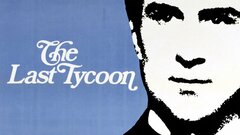
The Last TycoonStream

The Visitors
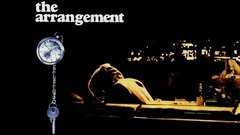
The ArrangementStream

The ArrangementStream

The ArrangementStream

The Dick Cavett ShowStream

America AmericaStream

America AmericaStream

America AmericaStream
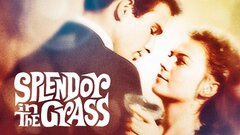
Splendor in the GrassStream

Splendor in the GrassStream
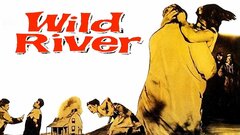
Wild RiverStream

Wild RiverStream
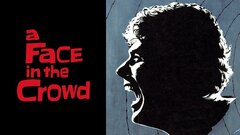
A Face in the CrowdStream
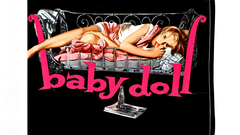
Baby DollStream

Baby DollStream
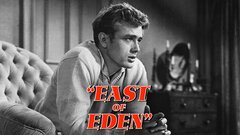
East of EdenStream

East of EdenStream
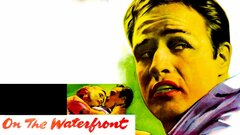
On the WaterfrontStream

Man on a Tightrope

Viva Zapata!Stream
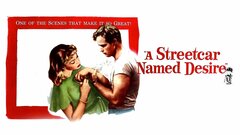
A Streetcar Named DesireStream

Panic in the StreetsStream

Pinky
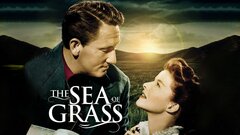
The Sea of GrassStream

Boomerang!
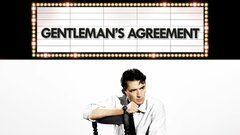
Gentleman's AgreementStream
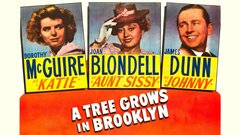
A Tree Grows in Brooklyn

Blues in the Night

The People of the Cumberland

Pie in the Sky
































